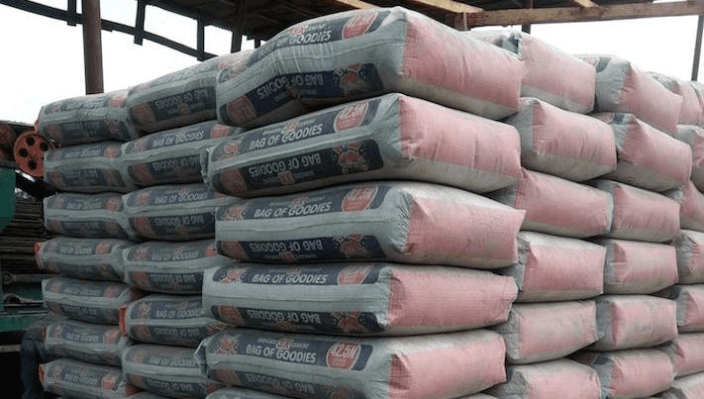Uncategorized
Dangote Cement, 9 others record N4.04trn operating expenses in H1 2025

Dangote Cement Plc and nine other prominent manufacturing companies in Nigeria have collectively recorded a significant increase in operating expenses, totaling N4.04 trillion in the first half of 2025.
This represents a 22 per cent rise compared to N3.31 trillion incurred during the same period in 2024.
The figure generated from the unaudited H1 2025 results of the 10 companies translates to a 22 per cent increase compared to the N3.31 trillion they incurred in the corresponding period of 2024, indicating rising cost of production, sales expenses, as well as distribution and administrative expenses.
The other nine companies are: BUA Cement Plc, BUA Foods Plc, Nestle Nigeria Plc, Cadbury Nigeria Plc, Lafarge Africa Plc, Nigerian Breweries Plc, Nascon Allied Industries Plc, International Breweries Plc, and Champion Breweries Plc.
Amid challenges, the 10 companies declared a combined N1.13 trillion profit in the period under review.
The significant increase in the operating expenses was against the backdrop of inflationary pressure, exchange rate volatility, and rising input costs.
Aside from inflationary pressure, the plummeting of the naira at the foreign exchange market, the other key factors contributing to these companies’ operating expenses include: High cost of power, transportation of goods and services, among others.
The naira at the Nigerian Foreign Exchange Market (NFEM) depreciated to N1,529.71 against the dollar as of June 2025, from N1,469.70 against the dollar in June 2024, fueled by the government’s decisions to remove the subsidy on petrol and the Central Bank of Nigeria (CBN) policy on the Naira at the foreign exchange market.
The prolonged Russia-Ukraine war induced strain in the global supply chain and has continued to cause an increase in the cost of raw materials for manufacturers, particularly as both countries rank among the top 10 producers of wheat.
Dangote Cement, followed by BUA Foods and Nestle Nigeria, recorded the highest expenses in the period under review.
The cement maker declared N1.29 billion operating expenses in H1 2025, up by 5.07 per cent from N1.24 trillion in H1 2024. The increase reflects higher raw material costs and sustained volume growth across product categories.
The breakdown of Dangote Cement’s operating expenses revealed that production costs stood at N853.6 billion in H1 2025, representing a 2.4 per cent increase from N833.27 billion in H1 2024, while administrative expenses/selling and distribution expenses increased from N403.22 billion in H1 2024 to N445.67 billion in H1 2025, representing a 10.5 per cent increase.
BUA Foods announced N628.2 billion operating expenses in H1 2025, about a 30 per cent increase over N482.4 billion in H1 2024, while Nigerian Breweries announced N586.59billion operating expenses in H1 2025, up by 33 per cent from N440.98billion declared in H1 2024.
In the period under review, Nestle Nigeria posted N451.3billion as total operating expenses in H1 2025, up by 31.1 per cent from the N344.2billion reported in H1 2024.
Similarly, BUA Cement saw its operating expenses at N335.97billion in H1 2025, representing an increase of 19.1 per cent from N282.12billion reported in H1 2024.
In the period under review, Lafarge Africa reported N218.35billion operating expenses, about 51 per cent growth from N218.3billion in H1 2024, while International Breweries closed H1 2025 with N278.68billion operating expenses, a growth of 33.5 per cent from N208.76billion in H1 2024.
On its part, Cadbury Nigeria announced N60.9 billion operating expenses in H1 2025, an increase of 31.1 per cent from N46.5billion in H1 2024, while Nascon Allied Industries posted N56.42billion operating expenses in H1 2025, about a 36.3 per cent increase from N41.38 billion reported in H1 2024.
Champion Breweries announced to the investing public N12.01 billion operating expenses in H1 2025, representing a growth of 34.6 per cent from N8.99billion declared in H1 2024.
While these companies have largely returned to profitability after grappling with foreign exchange losses in previous quarters, their earnings improvements remain modest for the most part.
The prevailing macroeconomic headwinds, particularly persistent inflation and a weak naira, continue to exert downward pressure on margins.
Although there is some level of stability in the foreign exchange, the impact of 2023 and 2024 currency depreciation continues to impact input prices and supply chains.
Many of the firms continue to feel the ripple effects of high import costs and elevated raw material expenses, which are yet to fully ease despite improved FX liquidity and clearer monetary policy direction.
Analysts told THISDAY that the hike in the inflation rate, among others, contributed to OPEX, not only affecting manufacturing companies’ profit generation, but also dividend payout.
They predicted a further hike in these companies’ OPEX in 2025, stressing that its impact may cut down on earnings and dividend payout to shareholders.
The Vice President, Highcap Securities Limited, Mr. David Adnori, said the hike in manufacturing companies’ operating expenses was a reflection of global economic unrest, stressing that financial institutions operating in Nigeria and in Africa do not operate in isolation.
He said, “The world is currently facing a high inflation rate, and Nigeria, Africa at large, is not exempt from this experience, with countries on the continent witnessing record-high inflation rates.
”The surge in the inflation rate follows the rally in crude oil prices, amidst the face-off between Russia/Ukraine, among other nations.”
On his part, the CEO of, Centre for Promotion of Private Enterprise (CPPE), Dr Muda Yusuf, stated that inflationary pressures remain a key concern in the Nigerian economy, both for businesses and the citizens.
He highlighted that the implications of a high inflation rate include escalation of production and operating costs for businesses, leading to erosion of profit margins, drop in sales, decline in turnover, weak manufacturing capacity utilisation, and high food prices, which adversely affect citizens’ welfare and aggravate poverty.
Despite these challenges, the companies have reported a combined profit of N1.13 trillion in the first half of 2025. Analysts predict further increases in operating expenses for 2025, which may impact earnings and dividend payouts.


